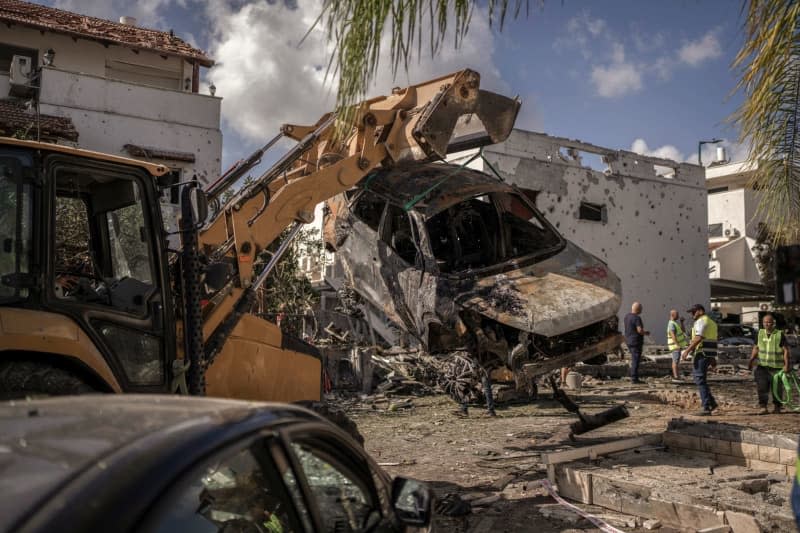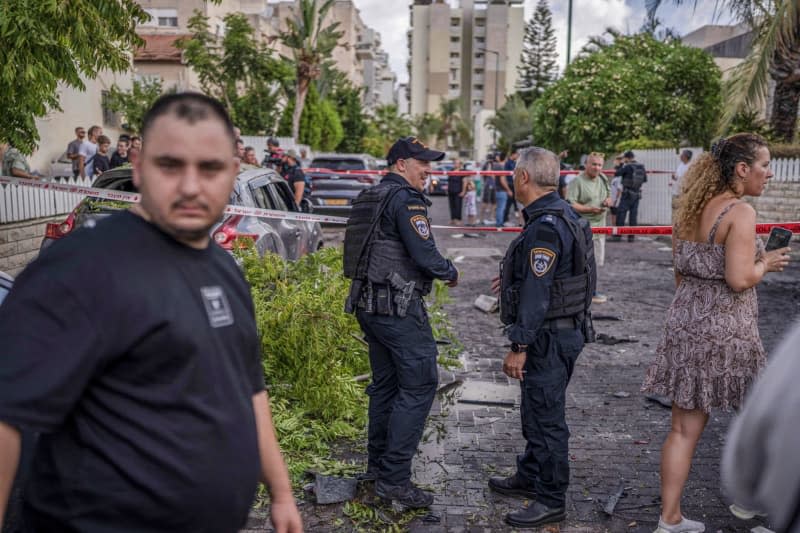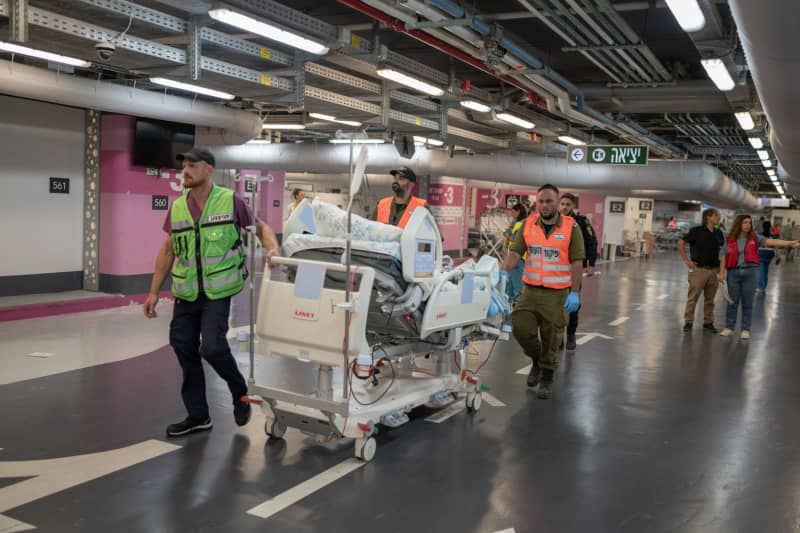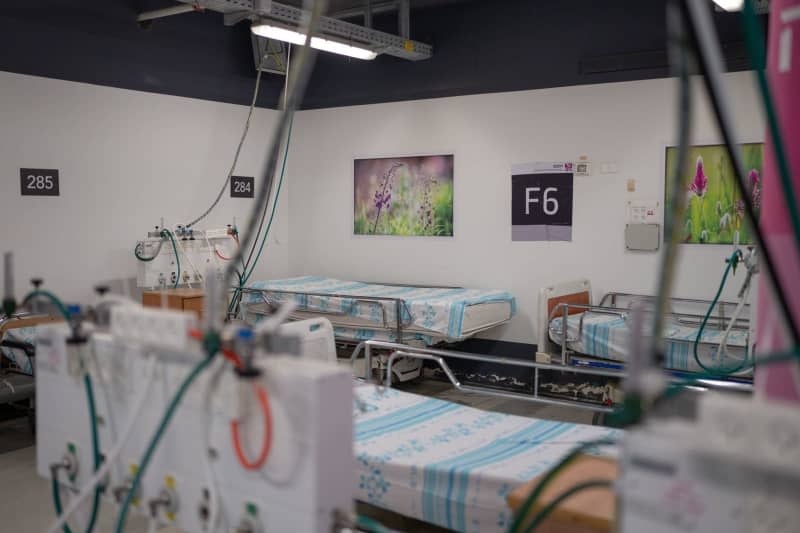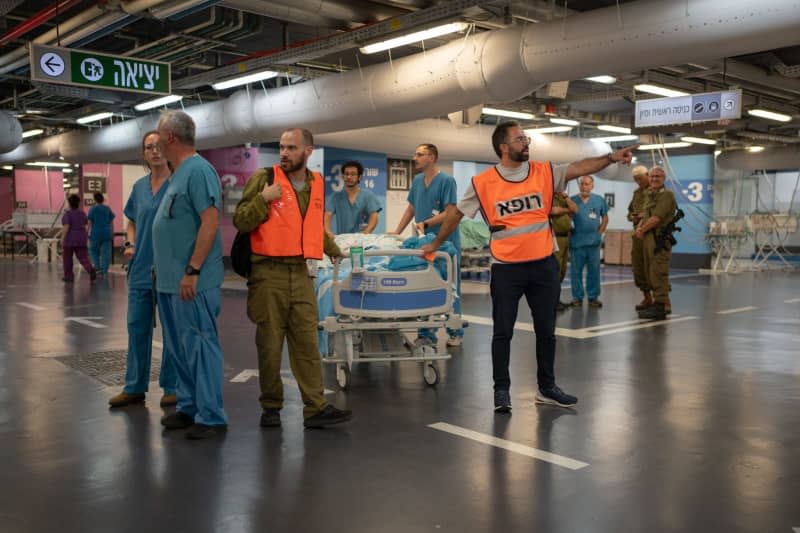The Hezbollah militia reported launching an attack on an industrial complex and an Israeli military base near the port city of Haifa in northern Israel early on Sunday, while the Israeli army said it launched attacks on Hezbollah targets in southern Lebanon.
Hezbollah described its attack as retaliation for Israel’s “brutal massacre” last week, in which coordinated blasts involving electronic devices across Lebanon caused death and injury.
The Iran-backed militia also said it had attacked the Israel Defence Forces’ (IDF) Ramat David airbase near Haifa in response to “repeated Israeli aggression in various regions in Lebanon.”
It did not mention the name of Ibrahim Akil, the senior Hezbollah commander killed in an Israeli attack on a Beirut suburb on Friday.
The death toll from Friday’s Israeli attack on Beirut’s southern suburbs, a hotbed of the Hezbollah movement, rose to 45, the Lebanese Health Ministry said on Sunday.
Meanwhile, the IDF reported on Sunday that Hezbollah had launched around 115 attacks on civilian targets in northern Israel.
IDF forces were on high alert in the region to ward off the attacks and to “intensify” attacks on Hezbollah, it said. The attacks penetrated further south than previously.
Air raid sirens were also heard to the south-west of Nazareth, which lies inland from Haifa.
Lebanese authorities described the Israeli air attacks as the heaviest since the start of the war in the Gaza Strip on October 7 last year. Some 70 targets had been attacked within 20 minutes, they said.
Hospitals in northern Israel to move patients to bunker
Amid increased cross-border rocket attacks from Lebanon, hospitals in northern Israel have been instructed to move patients to shelters, Isreali media reported on Sunday.
Rambam Hospital in Haifa, the region’s largest, announced it would begin relocating patients to its underground emergency facility at midday, following army directives.
Rambam’s so-called “bunker hospital,” built in 2014 and located more than 16 metres underground, can accommodate up to 1,400 patients, both soldiers and civilians, according to its website.
Normally used as a car park, the facility is also fortified against biological and chemical attacks.
Since the war began in the Gaza Strip on October 7 last year between Israel and the Palestinian Islamist Hamas movement, which is allied with Hezbollah, there have been almost daily military confrontations between the Israeli army and Hezbollah in the border area between the two countries.
There have been deaths on both sides, most of them members of the Lebanese Hezbollah militia. Hezbollah says it is acting in solidarity with Hamas.
Concerns are rising that the IDF could launch a ground offensive into southern Lebanon to force Hezbollah units back from the border in order to allow thousands of Israeli civilians to return to their homes in the region.
UN warns of ‘imminentcatastrophe’ in the Middle East
The United Nations special coordinator for Lebanon, Jeanine Hennis-Plasschaert, has warned that the Middle East is facing a catastrophic situation, stating that the region is “on the brink of an imminent catastrophe.”
She said: “It cannot be overstated enough: there is no military solution that will make either side safer.”
Hennis-Plasschaert’s remarks referred to the ongoing exchanges between Israel’s army and Hezbollah in Lebanon, which continued through the night.
Both sides have engaged in some of the most intense exchanges since their renewed confrontations began nearly a year ago.
The UN observer mission UNIFIL has been monitoring the Israel-Lebanon border since 1978. Last month, three UNIFIL soldiers were slightly injured by an explosion near their vehicle in southern Lebanon.
The mission currently involves around 10,000 troops and 800 civilians. Since its inception nearly 50 years ago, more than 300 UN peacekeepers have lost their lives.
US calls on citizens to leave Lebanon
Meanwhile, in view of the escalation, the United States is calling on its citizens to leave Lebanon.
“Due to the unpredictable nature of ongoing conflict between [Hezbollah] and Israel and recent explosions throughout Lebanon including the capital Beirut,” the US Embassy is advising its citizens to leave Lebanon while commercial options are still available, the US State Department said in a statement.
At this time, flights are still available, but with reduced capacity, it added.
